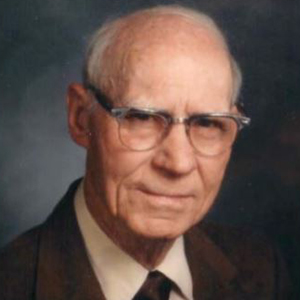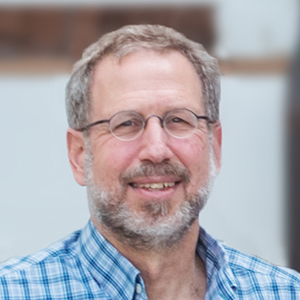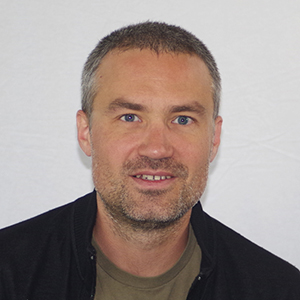economics
TOP 5 IN 50 YEARS
Appreciating the past
Econ investigates all the big questions of today, from globalization, inequality,
and sustainability to the future of jobs. In the process, economics students hone
skills in critical and analytical thinking and writing. A major in economics provides
a deep and rich foundation that will propel your career in any direction you want
to take.
For the college's 50th anniversary we want to share five significant moments from
our history.

Economics Graduates - outfitted with a degree to open doors
The Department of Economics has always recruited a diverse student body. This diversity expresses itself in terms of demographics and nationality, as well as in terms of the research topics our students engage with. Over the years, our students have written dissertations that contribute not only to fields of economics, but also to health sciences, history, finance, and education, to name just a few.
Crucially, our students’ success on the job market is a testament to the unique education and research training they receive in the Department of Economics here at the University of Utah. While data going back in time is not readily available, the Department’s placement record since 2009 has graduated more than seventy (70) doctoral students, more than half of which have gone on to tenure-track positions in universities and colleges across the United States and the world.
Tenure-track faculty with PhD’s in Economics from the U can be found at the University of Denver, Franklin & Marshall College, Denison University, the University of Rhode Island, Idaho State, Texas A&M, California State University campuses, and many others. Several graduates have begun their academic careers as post-doctoral researchers at prominent institutions such as Boston University, the CDC, Weill Cornell Medicine, and Colorado State University. Others have chosen to dedicate their expertise to public service in government agencies in Utah, and engaged in crafting economic and public policies in home countries abroad. Last but not least, our graduates have found success in the private sector working as analysts for consulting, financial, and pioneering companies such as Price Waterhouse Coopers, Wells Fargo, and Overstock.com.
Peter Philips
Professor of Economic History
Labor Economics - 2008
On Monday, September 15, 2008, Lehman Brothers, the fourth largest investment bank in the US announced that it would file for bankruptcy setting in motion the financial panic of the Great Recession. In response, the economics department in collaboration with the Hinckley Institute presented a panel discussion on the crisis which filled the Institute’s meeting room, spilled over into the halls of OSH, and was broadcast to several overflow classrooms.
This was probably the most diverse panel to ever comment on the crisis. It included one Marxist, one University of Chicago monetary theorist, an economist from the U’s business school, a Goldman Sachs banker, and the chair of the economics department as moderator.
I was that chair, and the father of one of the students in the audience was a banker
in North Carolina. His son had called him after the panel discussion to bounce what
he had learned off his father, who in turn, called me and thanked us for the presentation
which did two things: first, he had never before heard his son so interested in his work and the world of banking and finance, and
two, he had heard from his son on his being informed on a range of ideas to better
understand the crisis. The father and I talked for two hours about the crisis and
at the end, he mentioned that his son had come to the U to ski, but he was grateful
he was getting more out of his time in the college than just that.
Rudi von Arnim
Associate Professor
The Great Polarization - 2018
In the Fall of 2018, the Department of Economics held a conference on "The Great Polarization," attended by keynote speaker and Nobel Prize Laureate Joseph E. Stiglitz. Over two days, academics from economics and other social sciences debated the causes and consequences of the precipitous rise in inequality with politicians, civil society, and the broader community. As has only become ever more clear since, inequality is a political and policy choice, which we have the power to overturn. Members of the Economics department continue vigorous efforts to research theoretical and empirically sound explanations, and provide ideas for solutions, and in this manner they carry forward the department's decades-old tradition of critical thinking.
During this same academic year, the department offered a Praxis Lab, where a small group of competitively selected Honors Students embarked on a years-long journey to understand local, national and international facets of inequality. Students studied theory and data pertaining to broad trends in inequality, and dove specifically into local contexts including community meetings with immigrant groups in Salt Lake City,, and rural populations in Sanpete County. The Praxis Lab culminated in a student-run, collectively-designed art exhibit that challenged the public to rethink judgements of "the other" and, as one student put it, to "create a venue for the economically and socially marginalized people of Salt Lake City to be heard." The Department of Economics continues to engage students at all levels to not only learn, but grow, and transform themselves and society around them
The Three Worlds of Labor Economics and John Short Remembered
In the mid-1980’s, John Short, an adjunct professor and benefactor of the Economics department financed a conference at the Snowbird resort that brought in a range of well known and respected labor economists from a wide range of institutions including the Hoover Institute, the University of Chicago, BYU, UCLA, Washington University, UMASS Amherst, Berkeley, Harvard, University of Texas and the New School.
Never before had there been such a collection of marxist, institutionalist, and neoclassical labor economists that saw things so differently, yet found themselves in the same room. The reasoned discussion led to the created of a book, The Three Worlds of Labor Economics. This book was a standard reader in labor economics both in the US and overseas.
To this day, the department owes a debt of appreciation to John Short.

John Short
Treasured Times
Jewell Rasmussen

Jewell Rasmussen became Chair of the Economics department in the early 1950s. He was a member in good standing of the Church of Jesus Christ of Latter Day Saints, and deeply committed to issues of social and economic fairness. From his oral history, comes the following:
Yes, I remember one particular instance when I made a speech on some economic question, and people downtown got upset by it, some of the bankers particularly. They called President Olpin about it and said, "You ought to do something about this professor. He's been saying things that we don't like very well." Well, you know, I never heard a word from President Olpin. He never called me on the phone. He never called me in to talk to me. He handled it himself, and I never heard a word about it till later on when I was informed that he had received these calls and had told them that he wasn't going to interfere, that I had a right to speak, and that he didn't think that what was said was out of order. Nothing was said to me about it. I didn't know about it until two years later that he had been called and told he ought to do something about that professor….My respect for President Olpin went up when I heard that he had defended me against the criticism of the downtown people. I appreciated that.
Norman Waitzman

The department has its own life, longer than any of our own. But it is the rich insights and energy devoted to the department which has given it its sustenance, breath, and breadth over the past 50 years.
When I first arrived in 1988, an “old guard” of diverse members held sway. Jewel Rasmussen, over 90, still came to the Department regularly and worked. Allan Sievers, Kay Hunt, Lance Girton, Jim Gander, and Steve Reynolds took over the mantle. Jim Gander, like Jewel before him, still regularly comes to the office and actively works, even though he is decades into retirement. They were flanked by Jim Rock, Bill Carlisle, and Ken Jameson. Now, a new old guard has begun to emerge, and I sense I am close, if not already, knocking on the “old guard” door. A few of my contemporaries are now retiring. With this “changing of the guard,” we hope to leave the life of the department continually vital, and well worth keeping up its “guard” as it continues to grow.
Siddhartha - 2001
![]()
We had an economics student named Siddhartha who was of Northern European extraction, named after the founder of Buddhism. Siddhartha joined both the Church of Jesus Christ of Latter-Day Saints and the United States Navy, becoming an officer and after 9/11 was stationed in the Middle East. There he became interested in Islamic finance which among other things, prohibits the use of interest in the loaning of money. Instead, the loaners participate in the equity of the venture being financed. Siddhartha subsequently returned to the University of Utah Economics department and gave a talk on Islamic finance.
The talk was protested by some in the unsettled post-9/11 and Iraq war atmosphere, with some protesters interpreting Siddhartha’s name as Islamic. The talk went forward, and afterwards a local Islamic Iman who had brought several with him thanked the Economics department for the courage it displayed in presenting this topic at that time. This served as a shining example of the College’s commitment to diversity and respect, even in unsettled times at the University.


